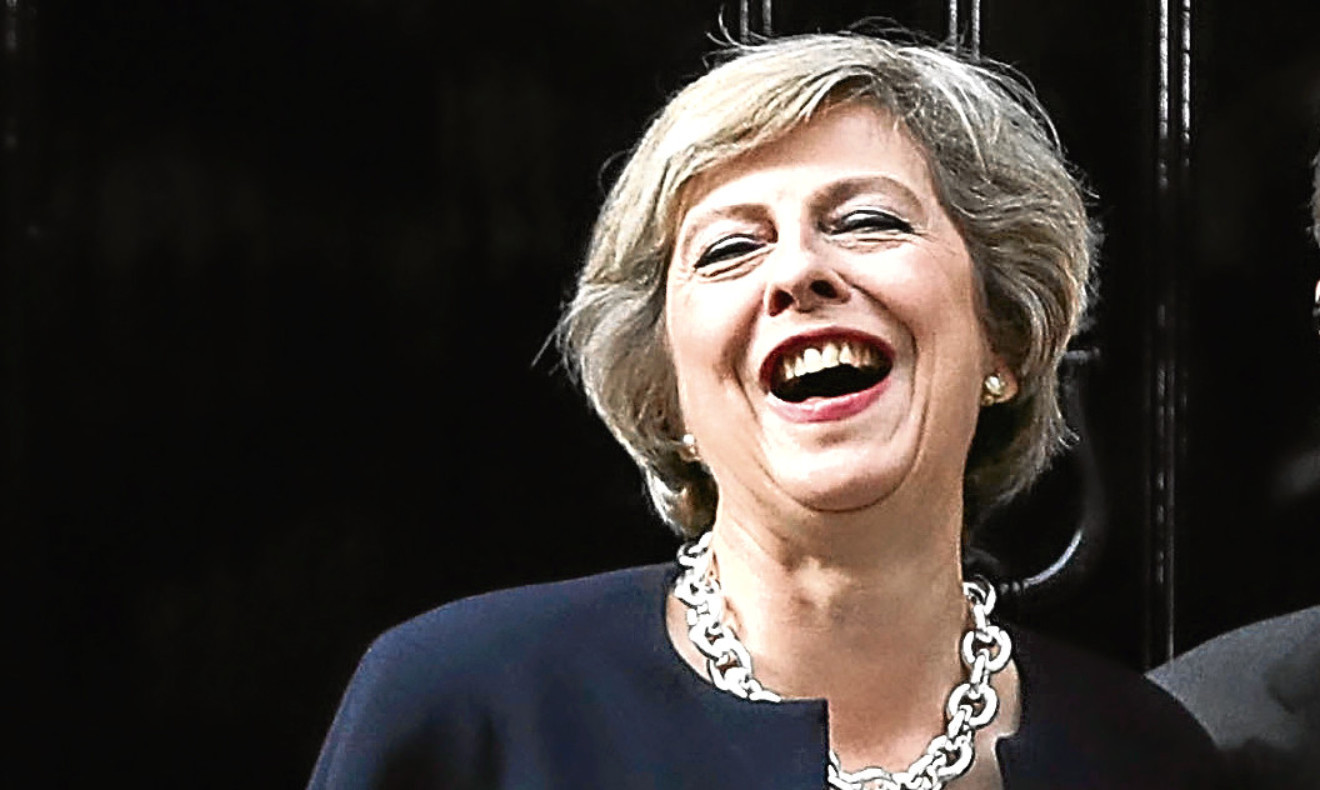They say you should always start as you mean to go on.
However, if you are a regular reader of these weekly meanderings of a Friday (or even if you have come across them once, thought: “What the…?” and taken yourself off to safer harbours among the pages of The Courier), you will know how easy it is for some people (ie. me) to go, as they say in Arbroath, “aff the fang”.
Be that as it may – and how apt that phrase is when referring to the intentions of our new Prime Minister and her somewhat wonky cabinet.
Rather more Ikea than Hepplewhite at the moment, I would say, with the potential for loose screws and bits that don’t fit in anywhere frighteningly evident, plus a distinct lack of detailed instructions and the political equivalent of Allen keys.
But be that as it May and leaving aside any ill-advised references to the words of St Francis of Assisi, I wonder if the PM will go on as she meant to, starting with her acceptance speech, especially where her championing of the less-well-off is concerned.
Surreal
The more I think about it (and I’ve got time to do that these days, more’s the pity for some of you), her opening gambit in Downing Street struck me as more and more surreal, perhaps because I kept thinking of a sublimely comic moment from one of my favourite films, Time Bandits.
This sub-Monty Python romp involves a small boy and a band of marauding wee men stravaiging the universe, slipping into black holes in search of treasure.
It’s a wonderful piece of nonsense with people like Ralph Richardson playing God and Sean Connery as Greek hero Agamemnon. However, the bit I’m talking about is where our intrepid tea-leafs fetch up in Sherwood Forest and meet Robin Hood, in the unlikely shape of John Cleese.
Forget Russell Crowe or Kevin Costner. This Robin is wonderfully vague and urbane in a Prince-Charles-at-his-most-distracted kind of way.
Given to robbing the rich to give to the poor as he is, he mistakenly believes the untimely visitors are donating their ill-gotten gains to the cause and drawls: “Well, I mean, it’s frightfully kind of you. The poor are going to be absolutely thrilled. Have you met them at all? Oh, you must meet them. I just know you’ll like them; charming people.”
I have no doubt the extremely bright Mrs May noticed over the past six years that those of us with less than six-figure salaries, not to mention those wondering, literally, where their next meal is coming from, have got more than a bit fed up with the increasing imbalances of our society.
She’s not daft after all, even if she did give Boris Johnson a major job which up until now has actually involved talking to people in a measured and thoughtful way.
Robin Hood
But she did come over like Mr Cleese in Robin Hood mode, being frightfully nice about looking after the little people. And then there was the emphasis on “you” and listening to “you” and not “them”.
I’m all for that but again, it sounded a bit like that part at the end of the “national” news when the broadcaster smiles sweetly and says: “And now the news where you are.” Which always sounds like “where you are” is nowhere near where anyone in their right mind would ever want to be.
Remember the old joke about the Hellawi tribe, so called because they spent all their time bouncing around in the undergrowth shouting: “Where they hell are we?”
It feels like we are the “Whereyouare” tribe and we are a strange and unknown quantity who, nevertheless, must be appeased.
Who do “you” think you are? I dunno, guv.
It’s probably going to turn out all right in the end but it doesn’t do to think too much about it all, does it?
If I hear the words “existential changes in politics” once more I shall go out and assault the nearest public servant with the collected works (in hardback) of Jean-Paul Sartre.
He apparently came up with the benighted concept of existentialism in the first place, when he wasn’t shacking up with Simone de Beauvoir and half her students or churning out aptly titled oeuvres like Nausea, Dirty Hands, No Exit and The Roads to Freedom.
Although, that one might be a bit more problematic to apply at this present time. Certainly around these parts.
I speak as someone, two of whose great-uncles were actually professors of philosophy, although my own take on this vexed subject comes from the afore-mentioned Monty Python’s Philosopher’s Song which contains the deathless couplet, paraphrasing Descartes: “I drink therefore I am.”
But then, it’s obvious that the intellectual arc of my family has plummeted earthwards somewhat in recent times, given that I spent some considerable time not many weeks since coming up with 850 (albeit well-chosen) words for the Dundee Courier on the subject of porridge…
